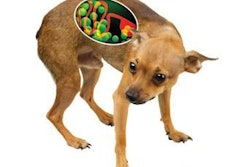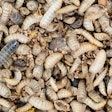The objective of this review is to discuss common medical conditions contributing to feline lower urinary tract symptoms (LUTS), and to present currently utilized and potential preventative dietary modifications.
Feline LUTS are a set of clinical conditions with similar symptoms related to inappropriate urine elimination due to a combination of genetics, stress and frustration reactions, environment, and medical condition(s) (e.g., idiopathic cystitis, urolithiasis, urethral obstruction and urinary tract infection). The main goals of dietary modifications to prevent LUTS are: 1) promote large dilute volumes of urine; 2) decrease the relative supersaturation of urine for specific stone types; and 3) promote healthy bacterial populations in the gastrointestinal and urogenital tracts. Because of the complex interaction of diet composition, environment and animal physiology, there is a need for clinical research linking current recommendations or dietary options for the treatment and prevention of LUTS with physiological outcomes (i.e., decreased RSS and LUTS recurrence).
Additionally, for many recommendations (e.g., probiotic administration, EPA, DHA), extrapolation from other species was necessary. Research is needed in feline patients with LUTS on these dietary components.
Source: K.R. Kerr, 2013. Dietary management of feline lower urinary tract symptoms. J Anim Sci online, February 2013. doi: 10.2527/jas.2012-6035
















